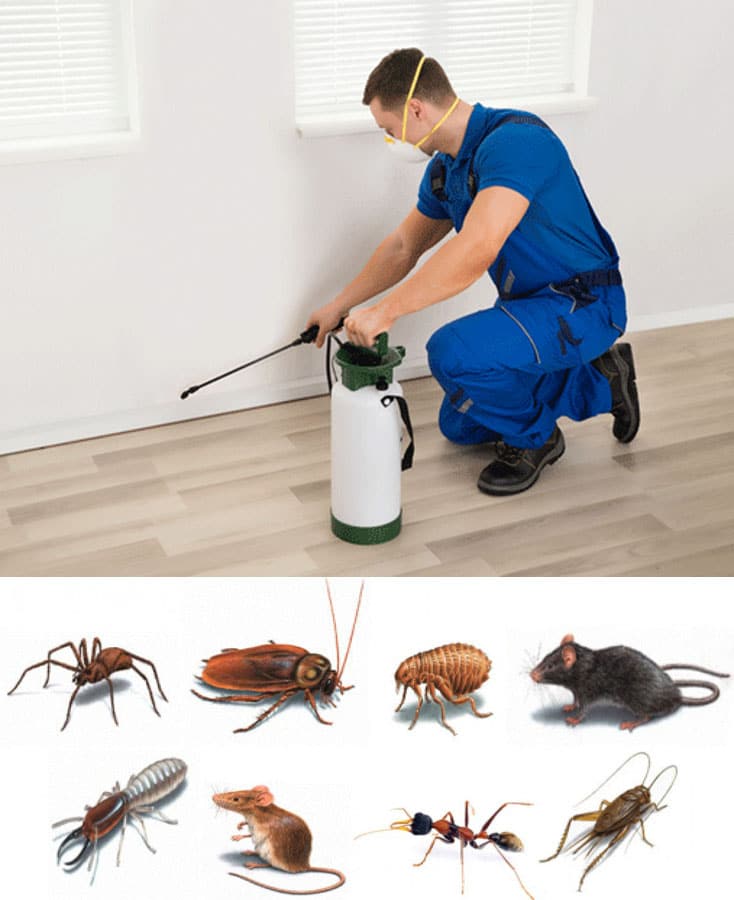Living harmoniously with nature is a joint aim for numerous homeowners, yet the existence of specific pests can lead to conflicts that disrupt our daily lives. From ants parading through the kitchen to mice seeking shelter during frigid months, grasping how to live together without conflict is crucial. With https://canvas.instructure.com/eportfolios/3548698/entries/13062267 -thinking approach, you can discover to handle these unwelcome visitors while minimizing harm to both your property and the ecosystem.
This manual will explore effective strategies for insect control, covering everything from common household pests and effective eradication techniques to the significance of expert pest inspections. We will delve into seasonal pest challenges, providing you with year-round prevention tips that keep your residence protected and cozy for both inhabitants and invited guests alike. Whether you're dealing with insects in the spring or rodents in the winter, our comprehensive insights will assist you create an environment beneficial to harmonious coexistence with the animals around us.
Comprehending Frequent Household Pests
Home pests appear in a variety of forms and can be a headache for property owners. Among the most widespread pests are ants, cockroaches, the unwanted hitchhikers, and gnawing pests. Ants are often found foraging for nourishment and can rapidly invade cooking spaces and food storage areas. These critters are known carriers of germs and thrive in warm, humid environments, making them a serious health concern. Bed bugs, though small, can cause significant discomfort and distress due to their bites, while rodents can damage homes and contaminate food.
Recognizing these pests is the initial step toward efficacious control. Look for signs such as droppings, leftover wings, or the presence of nests. Every pest has distinct habits and habitats that can provide clues to their presence. For instance, little rodents tend to create nests in dark, secluded areas, while wood-eating bugs may leave behind tunnels or their cast-off wings. Comprehending these behaviors can help in both prevention and elimination efforts.
Once recognized, it's crucial to know the most effective methods for dealing with these pests. While do-it-yourself solutions exist, expert pest control services are often more effective, especially for larger infestations. Knowing what attracts these pests can also aid in prevention; for example, keeping food sealed and minimizing moisture can deter many usual household invaders. By understanding the characteristics of these pests, homeowners can take proactive steps to protect their habitats.
Efficient Pest Management Methods
To effectively manage pests and create a pest-free environment, comprehending how to identify and eliminate household pests is crucial. Many homeowners may attempt DIY pest control approaches, but these frequently fail due to a deficiency of comprehensive knowledge about the behavior of pests and biology. Instead of relying exclusively on store-bought solutions, contemplate engaging professionals who can offer customized advice and treatment plans. Frequent inspections can help catch potential infestations in their infancy, ensuring a forward-thinking approach to pest management.
In conjunction with professional help, implementing proactive measures is essential for sustained pest control success. This comprises sealing entry points, upholding proper sanitation, and storing food in inaccessible containers. Seasonal strategies can additionally be helpful. For example, springtime preparation for pests like ants and mosquitoes can spare homeowners from more significant issues in the warmer months. Building these habits lowers the chances of infestations occurring in the beginning.
Utilizing green and non-toxic pest control solutions is another efficient strategy that advantages both the living space and the ecosystem. Natural treatments not only shield your family and pets but also lessen harm to useful insects and the surrounding ecosystem. There are many techniques available, spanning essential oils to diatomaceous earth, which can function as alternatives to chemical pesticides. By combining these strategies, homeowners can achieve a equitable approach to pest control that highlights coexistence while maintaining their environments comfortable and safe.

Seasonal Pest Prevention Tips
Springtime brings a surge in pest activity levels as temperatures increase and plants start to flower. To prevent typical spring pests, such as ant infestations and mosquitoes, make sure that your yard is free of stagnant water and debris, which act as reproduction grounds. Inspect your home for cracks and holes and seal them to keep pests from entering. Consistently checking vegetation for signs of pest problems can also help catch problems early.
As summer nears, focus on keeping a pest-free environment outdoors and inside. Keep food stored securely and remove spills promptly to deter insects like flies and roaches. Consider using natural pest control methods, such as essential oils, which can be effective against mosquitoes and other summer pests. Additionally, watch your plants for any indications of pest damage and use eco-friendly pest control tactics to protect your plants without harmful chemicals.
With the onset of fall, pests like mice seek shelter from the chilly temperatures. Take preventative measures to pest-proof your home, such as keeping firewood away from the house and keeping gutters clean to prevent moisture accumulation. It’s crucial to plan routine inspections and maintenance to spot areas where pests might enter and to use preventative treatments as needed. This way, you can appreciate the shifting seasons without the concern of pest infestations.
